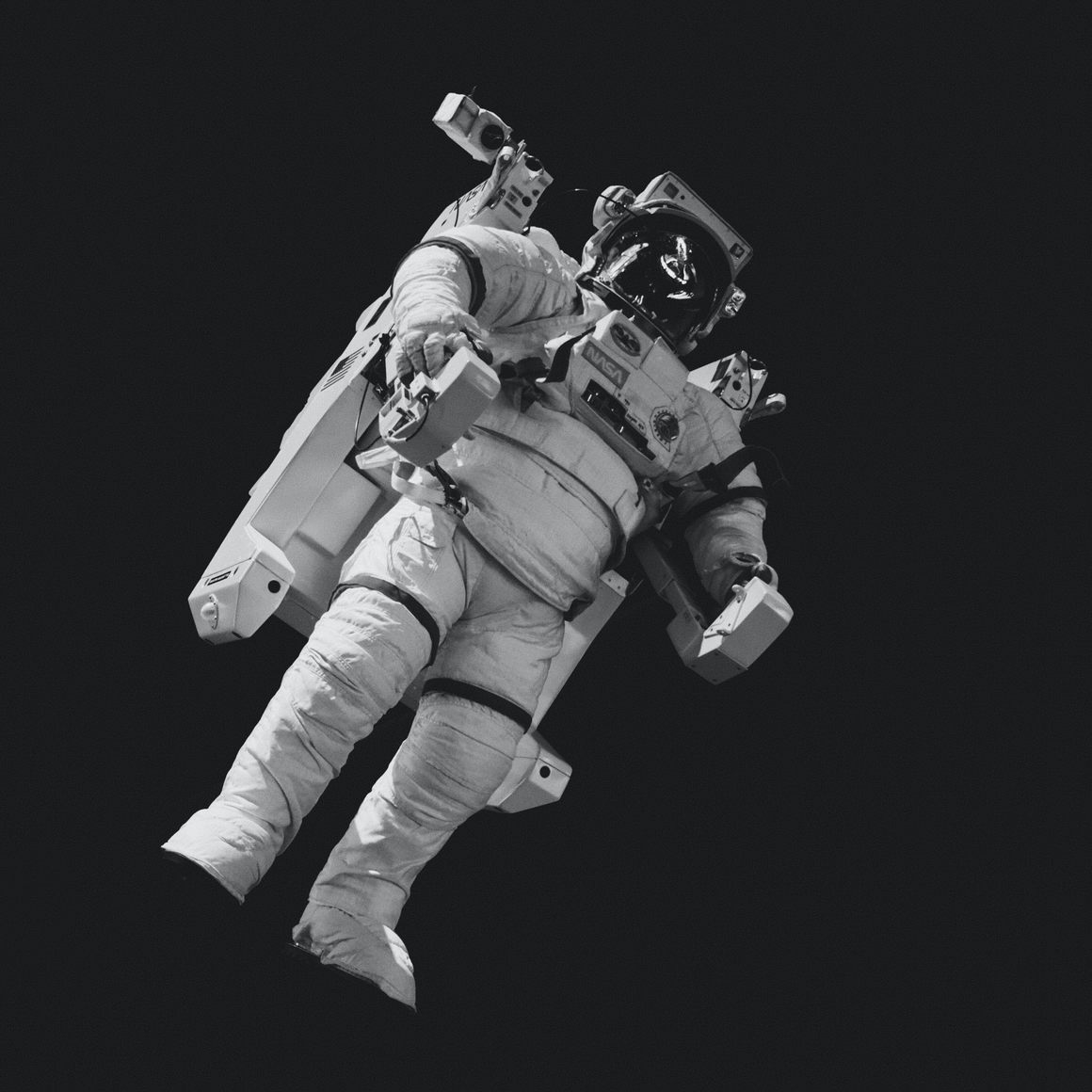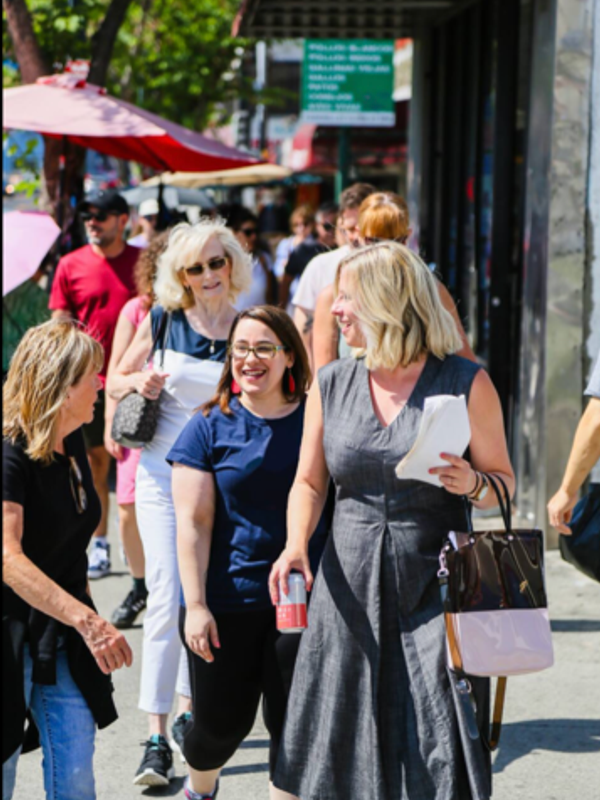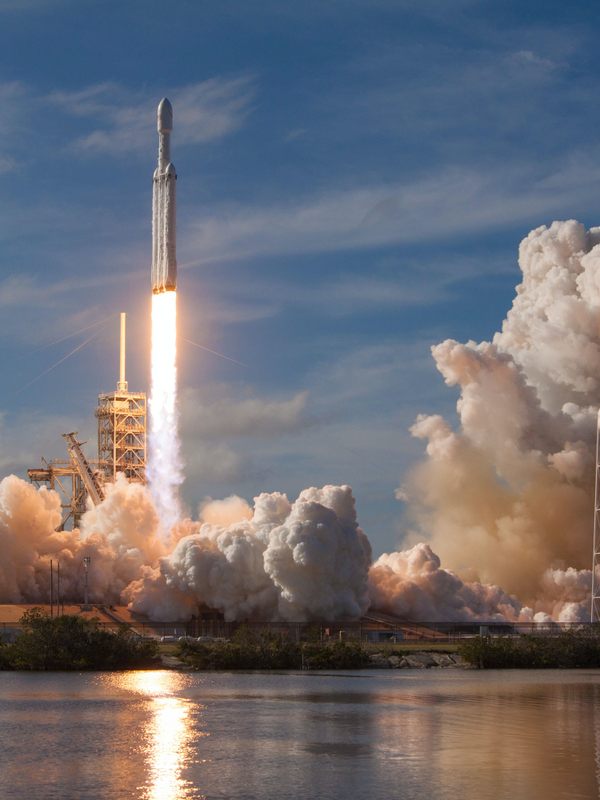

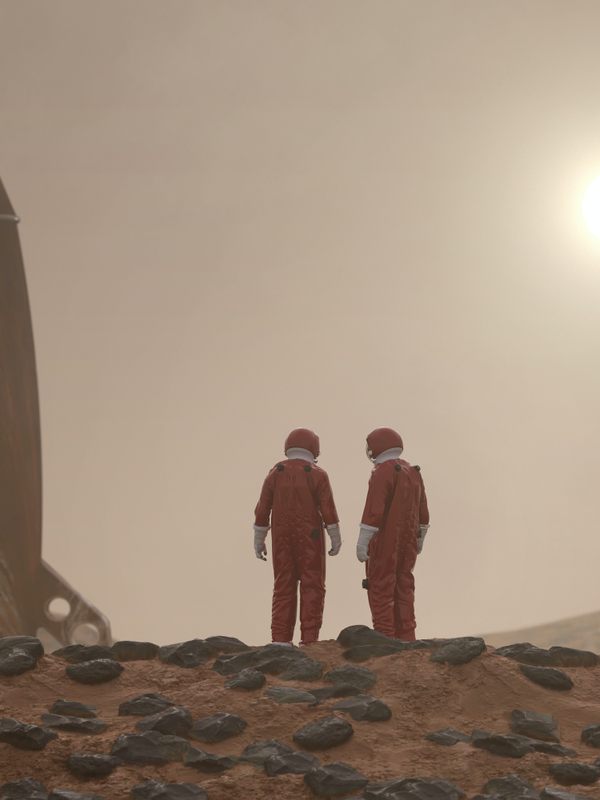

This course has already started! However, you can still join if you’d like to (and we hope you will!). Students enrolling after the course start date and time will have access to a recording of the first session (which will be emailed to participants within 72 hours) as well as the option to attend remaining sessions live. Please select the “Join Late” ticket type to enroll after the course has begun.
In this three-part lecture series, we’ll trace the history of space exploration, look at what’s happening now, and discuss the idea of human life beyond Earth.
Course Description
The mystery of what lies beyond our planet has intrigued humans for centuries. And with space appearing so often in stories, myths, religions, and media, it’s no surprise that sending humans out into that Great Beyond has taken on serious cultural and political meaning. In this course, educator Ashley Christine will trace the history of space exploration back to the space race, and cover the state of modern day space travel and research, focusing on Mars and Venus. Then, we’ll look toward the future, looking at possible future missions and hashing out the habitability of various planets and moons in our solar system—examining where the impulse to colonize other planets really comes from, and whether or not it’s the silver bullet to surviving the Anthropocene some say it will be. Hang on to your space helmet; this class is going to be out of this world!
Syllabus At A Glance
This course includes three total sessions, each lasting 1.5 hours on three consecutive Wednesdays beginning March 27.
Session 1 (Wednesday, 3/27, 7:30–9:00 PM ET)| Blasting Off Into History
We’ll cover the history of the space program, the challenges of space travel, and current projects being worked on for future exploration missions.
Session 2 (Wednesday, 4/3, 7:30–9:00 PM ET)| Mars & Venus
We’ll look at the current state of exploration of Mars; why we’re going, the challenges, and what’s next. We’ll also talk about the intrigue of Venus and the arguments for and against reallocating resources from Mars to Venus.
Session 3 (Wednesday, 4/10, 7:30–9:00 PM ET)| Titan & Beyond
In the final session, we’ll focus on the potential colonization of Titan, one of Saturn’s moons, as well as discuss the challenges and hopes for exploring beyond our own solar system.
Pricing Options
This course is available at three ticket prices. This tiered pricing model is designed to increase access for a wider range of students as well as to support our instructors. In addition to tiered tickets, we offer a limited number of no-pay spots for students who would not otherwise be able to take this course. No-pay spots are selected via a randomized drawing two weeks before each section begins. For more information and to apply for a no-pay spot, please click here. To learn more about our pricing model and randomized selection process for no-pay spots, please visit our FAQ page.
Community Guidelines for Students
Please take a moment to review our community guidelines for students, which aim to share our classroom ethos and help set the stage for the best possible learning experience.
Atlas Obscura Online Courses
Atlas Obscura Courses offer opportunities for participants to emerge with new skills, knowledge, connections, and perspectives through multi-session classes designed and taught by expert instructors. To learn more about our current course offerings, please visit www.atlasobscura.com/online-courses. For answers to commonly asked questions, check out our FAQ page here.
Founded in 2009, Atlas Obscura created the definitive community-driven guide to incredible places across the planet and is now an award-winning company that shares the world’s hidden wonders in person and online.
Once registered, you’ll receive a confirmation email from Eventbrite that will provide access to each class meeting. Please save the confirmation email as you’ll use it to access all sessions of your course via Zoom.
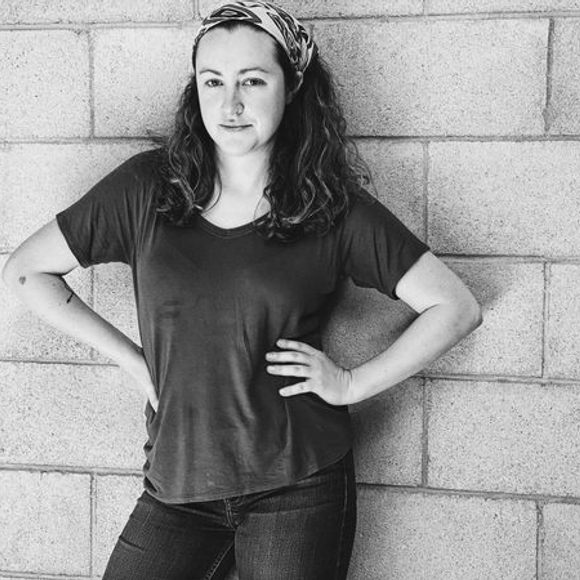

Ashley Christine has a B.A. in Applied Mathematics and studied at the University of New Hampshire, Southern New Hampshire University, and California State University. She was a researcher on New Hampshire’s education initiative for the state legislature before moving to Los Angeles, California to pursue a career in entertainment and STEM.
This lecture series is designed so students can participate live or watch a recording of each session, after it airs, at a time that is convenient for them. Sessions will take place live over Zoom, with dedicated Q&A segments for students to ask questions via video or chat. Within 72 hours after each session meets, students will receive access to a recording of the live session, which they can watch for up to two weeks after the course concludes.
Instructors may use Google Classroom to communicate with students outside of class. While students aren’t required to use Google Classroom, instructors may use this platform to post resources, discussion questions, or assignments. This platform also offers a space for students to connect with one another about course material between sessions.
We provide closed captioning for all of our courses and can share transcripts upon request. Please reach out to us at experiences@atlasobscura.com if you have any questions, requests, or accessibility needs.




